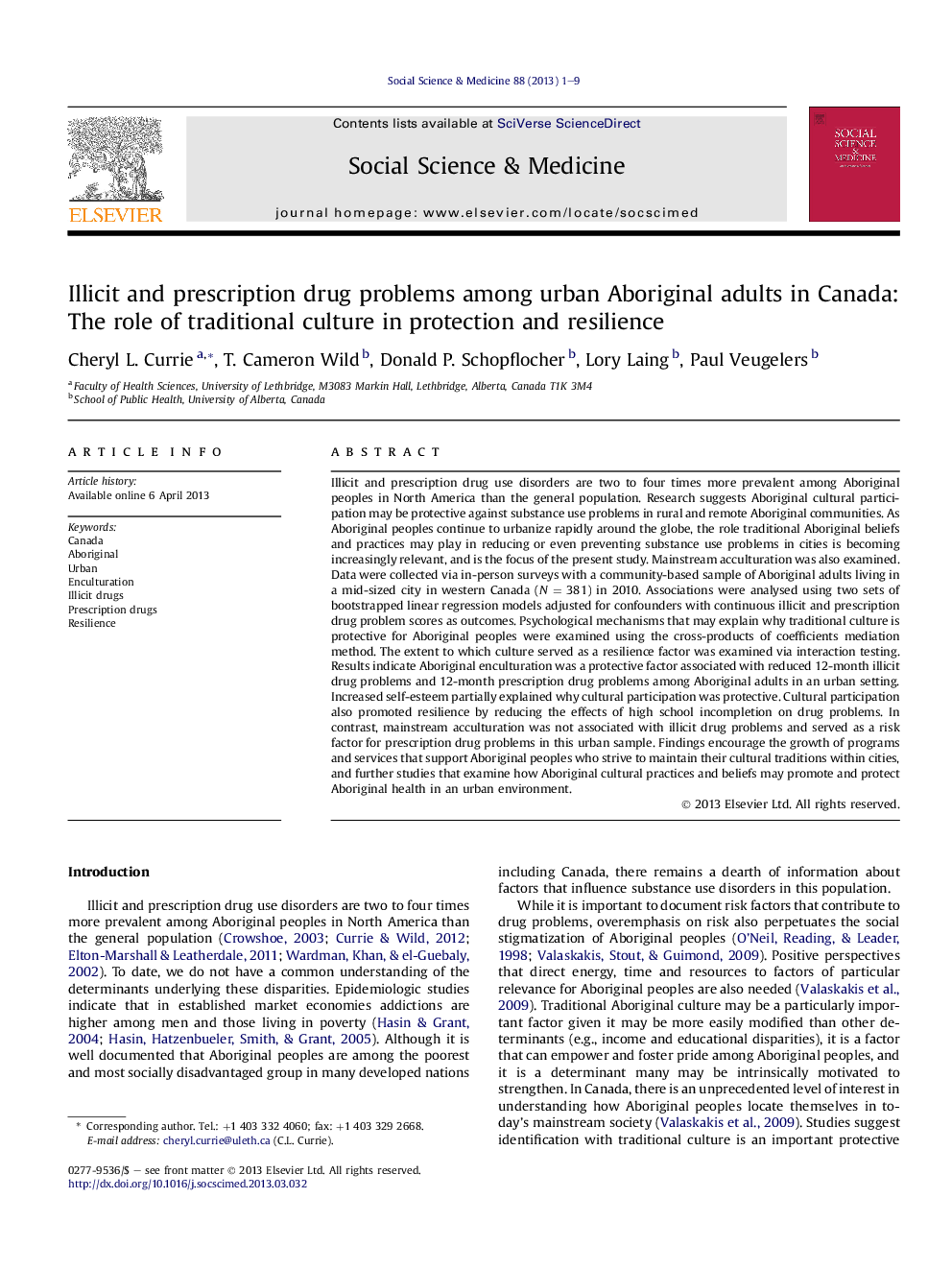| کد مقاله | کد نشریه | سال انتشار | مقاله انگلیسی | نسخه تمام متن |
|---|---|---|---|---|
| 7337327 | 1476080 | 2013 | 9 صفحه PDF | دانلود رایگان |
عنوان انگلیسی مقاله ISI
Illicit and prescription drug problems among urban Aboriginal adults in Canada: The role of traditional culture in protection and resilience
ترجمه فارسی عنوان
مسائل مربوط به مواد مخدر غیرقانونی و تجویز در میان شهروندان بومی محلی کانادا: نقش فرهنگ سنتی در حفاظت و انعطاف پذیری
دانلود مقاله + سفارش ترجمه
دانلود مقاله ISI انگلیسی
رایگان برای ایرانیان
کلمات کلیدی
کانادا، بومی شهری، اتمام حجت، مواد مخدر غیرقانونی، داروهای تجویزی، انعطاف پذیری،
موضوعات مرتبط
علوم پزشکی و سلامت
پزشکی و دندانپزشکی
سیاست های بهداشت و سلامت عمومی
چکیده انگلیسی
Illicit and prescription drug use disorders are two to four times more prevalent among Aboriginal peoples in North America than the general population. Research suggests Aboriginal cultural participation may be protective against substance use problems in rural and remote Aboriginal communities. As Aboriginal peoples continue to urbanize rapidly around the globe, the role traditional Aboriginal beliefs and practices may play in reducing or even preventing substance use problems in cities is becoming increasingly relevant, and is the focus of the present study. Mainstream acculturation was also examined. Data were collected via in-person surveys with a community-based sample of Aboriginal adults living in a mid-sized city in western Canada (NÂ =Â 381) in 2010. Associations were analysed using two sets of bootstrapped linear regression models adjusted for confounders with continuous illicit and prescription drug problem scores as outcomes. Psychological mechanisms that may explain why traditional culture is protective for Aboriginal peoples were examined using the cross-products of coefficients mediation method. The extent to which culture served as a resilience factor was examined via interaction testing. Results indicate Aboriginal enculturation was a protective factor associated with reduced 12-month illicit drug problems and 12-month prescription drug problems among Aboriginal adults in an urban setting. Increased self-esteem partially explained why cultural participation was protective. Cultural participation also promoted resilience by reducing the effects of high school incompletion on drug problems. In contrast, mainstream acculturation was not associated with illicit drug problems and served as a risk factor for prescription drug problems in this urban sample. Findings encourage the growth of programs and services that support Aboriginal peoples who strive to maintain their cultural traditions within cities, and further studies that examine how Aboriginal cultural practices and beliefs may promote and protect Aboriginal health in an urban environment.
ناشر
Database: Elsevier - ScienceDirect (ساینس دایرکت)
Journal: Social Science & Medicine - Volume 88, July 2013, Pages 1-9
Journal: Social Science & Medicine - Volume 88, July 2013, Pages 1-9
نویسندگان
Cheryl L. Currie, T. Cameron Wild, Donald P. Schopflocher, Lory Laing, Paul Veugelers,
